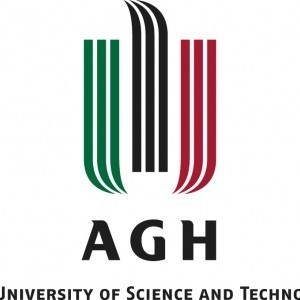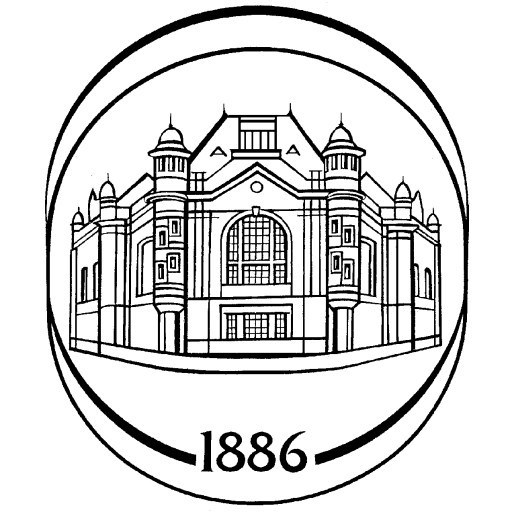Photos of university / #agh.krakow
Electronics and Telecommunications: Sensors and Microsystems at AGH University of Science and Technology offers a comprehensive curriculum designed to prepare students for the rapidly evolving fields of electronic sensing, microelectronic systems, and telecommunications. This program emphasizes both theoretical foundations and practical skills, enabling graduates to develop innovative solutions for modern technological challenges. Students delve into the design, manufacturing, and application of sensors, microelectromechanical systems (MEMS), and integrated electronic circuits used in various industries such as healthcare, automotive, consumer electronics, and telecommunications. The coursework covers a wide range of topics, including analog and digital electronics, signal processing, wireless communication, nanotechnology, and embedded systems, ensuring a solid understanding of both hardware and software aspects of modern electronic devices. Laboratory work and industrial internships are integral parts of the program, providing hands-on experience with cutting-edge technologies and fostering teamwork and problem-solving skills. The program is supported by state-of-the-art laboratories equipped with advanced instrumentation and tools for research and development. Students also have opportunities to participate in international exchange programs, research projects, and collaborations with industry partners, enhancing their professional networks and career prospects. Graduates of this programme are well-prepared to work as engineers, designers, and researchers in sectors such as electronics manufacturing, telecommunication companies, research institutes, and startups developing innovative sensor and microdevice solutions. The program aims to produce graduates who are not only technically proficient but also equipped with the ability to adapt to rapid technological changes and to contribute to the development of smart and connected systems. With a strong foundation in electronics, sensing technologies, and microfabrication, students will be ready to tackle the challenges of the Fourth Industrial Revolution and contribute effectively to the digital and ecological transformation of society.
The Electronics and Telecommunications: Sensors and Microsystems degree program at AGH University of Science and Technology is designed to equip students with comprehensive knowledge and practical skills in the fields of electronic sensors, microelectromechanical systems (MEMS), and miniature electronic components. This multidisciplinary program combines principles from electronics, telecommunications, physics, and materials science to prepare graduates for innovative roles in research, development, and industry.
Throughout the program, students explore the fundamental theories of electronic circuits, signal processing, and sensor design, alongside specialized topics such as microfabrication techniques, sensor integration, and system automation. Emphasis is placed on understanding the operation and manufacturing of sensors used in various applications, including environmental monitoring, biomedical devices, industrial automation, and consumer electronics. The curriculum covers both analog and digital electronic systems, embedded systems programming, and wireless communication technologies, enabling students to develop sophisticated sensor-based solutions.
Laboratory classes and project work form a core component of the studies, where students gain hands-on experience in designing, testing, and deploying sensors and microsystems. They learn to utilize modern tools and software for circuit simulation, microfabrication, and system integration. The program also aims to develop students' problem-solving abilities, teamwork skills, and innovative thinking, preparing them to address technological challenges and contribute to advancing electronic and telecommunication systems.
In addition to theoretical education, students are encouraged to participate in internships, industry collaborations, and scientific research projects. These activities provide practical insights and foster professional networking, which are crucial for career development. Graduates of this program will be well-equipped to work in high-tech companies, research institutes, or continue their education at postgraduate levels.
Overall, the Electronics and Telecommunications: Sensors and Microsystems program is dedicated to cultivating highly skilled engineers capable of designing next-generation electronic devices and systems, supporting technological progress across various sectors. The program reflects AGH University's commitment to excellence in technical education and innovation, ensuring students are prepared for the demands of the rapidly evolving electronics and telecommunications industries.
The Electronics and Telecommunications: Sensors and Microsystems program at AGH University of Science and Technology requires applicants to possess a strong foundation in mathematics, physics, and basic electrical engineering principles. Prospective students should have completed secondary education with a focus on science and technical subjects, demonstrating their aptitude for rigorous scientific coursework. The program demands proficiency in advanced mathematics, including calculus and linear algebra, as well as knowledge of physics related to electromagnetism and materials science. Applicants must demonstrate their logic and problem-solving skills through their academic records and relevant extracurricular activities. Additionally, prior experience or coursework in electronics, circuit design, programming, or microcontroller systems is advantageous and can strengthen the application. The university emphasizes the importance of analytical thinking, innovation, and interest in emerging technologies such as sensors, microelectromechanical systems (MEMS), and nanoscale components. Language proficiency in English is mandatory, as many courses are delivered in English, and applicants must provide proof of language skills through recognized tests such as TOEFL or IELTS. The admissions process also involves an interview or assessment of motivation and interests aligned with the program's focus on developing sensor systems, measurement techniques, and miniature electronic devices. As part of the curriculum, students are expected to participate in laboratory work, practical projects, and internships, which require solid fundamental knowledge and technical skills. The program aims to prepare graduates for careers in research and development, industry, and academia, with a strong emphasis on innovation, electrical circuit design, signal processing, and microsystem integration. To meet graduation requirements, students must successfully complete coursework, practical exercises, and a final master's thesis related to sensors or microsystems technology. Throughout their studies, students are encouraged to engage with the latest technological advancements and participate in scientific conferences, professional seminars, and collaborative projects that enhance their practical and theoretical understanding of modern electronics and telecommunications systems.
The Electronics and Telecommunications: Sensors and Microsystems program at AGH University of Science and Technology offers various financing options for prospective students. The primary method of financing is through tuition fees paid by students, which vary depending on the nationality and selected form of study (full-time or part-time). Polish citizens and residents benefit from lower tuition fees compared to international students, who are required to pay higher rates, reflecting the costs associated with international education. The university also provides scholarships and financial aid opportunities for both domestic and international students based on academic performance, social criteria, or specific grants aimed at supporting international students. These scholarships can substantially reduce the financial burden of studies and incentivize academic excellence.
Students may also explore governmental or regional grants dedicated to supporting engineering and technical disciplines, which some students successfully obtain. For students seeking additional financial support, work opportunities on or off-campus are available, allowing them to earn supplementary income while pursuing their studies. The university occasionally collaborates with companies in the electronics and telecommunications sectors, offering internships or sponsored projects, which can include stipends or financial support.
Moreover, the university sometimes participates in European Union-funded programs and projects that provide funding for research, internships, and student mobility initiatives, thereby enabling students to gain international experience and financial assistance. For international students, there are also special funding schemes designed to facilitate their integration and support their academic journey in Poland.
Overall, the financing of studies in the Sensors and Microsystems specialization at AGH University combines a range of options intended to make education accessible and affordable, including tuition fees, scholarships, governmental grants, part-time work, internships, and EU funding programs. Prospective students are encouraged to consult the university’s official website and contact the admissions office for detailed, up-to-date information on available financial aid options, application procedures, and eligibility criteria, ensuring they have comprehensive support throughout their educational journey.
Electronics and Telecommunications: Sensors and Microsystems is a specialized engineering program offered by the AGH University of Science and Technology. This program focuses on the design, development, and application of electronic sensors, Microsystems, and telecommunications technologies. Students gain comprehensive knowledge in electronics, signal processing, sensor systems, and microfabrication techniques. The curriculum includes courses on analog and digital electronics, microelectromechanical systems (MEMS), wireless communication, and embedded systems, preparing graduates to meet the demands of modern electronic and telecommunication industries. Practical laboratories provide hands-on experience in designing and testing sensors, Microsystems, and communication devices, fostering both theoretical understanding and technical skills. The program also emphasizes innovation in the field of sensors and Microsystems, encouraging students to participate in research projects and collaborations with industry partners. Graduates are equipped to work in various sectors including telecommunications, consumer electronics, automotive industry, industrial automation, and medical devices. The program benefits from the university’s strong ties with the industry, offering students internships and opportunities to participate in cutting-edge research. Overall, Electronics and Telecommunications: Sensors and Microsystems aims to develop engineering professionals capable of designing advanced electronic sensing solutions and communication systems that contribute to advancements in technology and improve everyday life.







